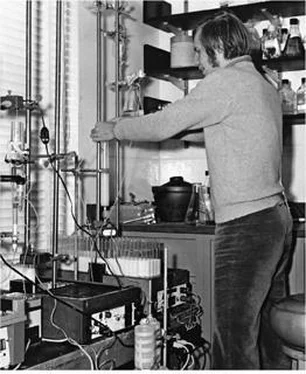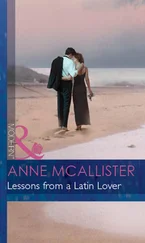James Watson - AVOID BORING PEOPLE - Lessons from a Life in Science
Здесь есть возможность читать онлайн «James Watson - AVOID BORING PEOPLE - Lessons from a Life in Science» весь текст электронной книги совершенно бесплатно (целиком полную версию без сокращений). В некоторых случаях можно слушать аудио, скачать через торрент в формате fb2 и присутствует краткое содержание. Жанр: Биографии и Мемуары. Описание произведения, (предисловие) а так же отзывы посетителей доступны на портале библиотеки ЛибКат.
- Название:AVOID BORING PEOPLE: Lessons from a Life in Science
- Автор:
- Жанр:
- Год:неизвестен
- ISBN:нет данных
- Рейтинг книги:5 / 5. Голосов: 1
-
Избранное:Добавить в избранное
- Отзывы:
-
Ваша оценка:
- 100
- 1
- 2
- 3
- 4
- 5
AVOID BORING PEOPLE: Lessons from a Life in Science: краткое содержание, описание и аннотация
Предлагаем к чтению аннотацию, описание, краткое содержание или предисловие (зависит от того, что написал сам автор книги «AVOID BORING PEOPLE: Lessons from a Life in Science»). Если вы не нашли необходимую информацию о книге — напишите в комментариях, мы постараемся отыскать её.
AVOID BORING PEOPLE: Lessons from a Life in Science — читать онлайн бесплатно полную книгу (весь текст) целиком
Ниже представлен текст книги, разбитый по страницам. Система сохранения места последней прочитанной страницы, позволяет с удобством читать онлайн бесплатно книгу «AVOID BORING PEOPLE: Lessons from a Life in Science», без необходимости каждый раз заново искать на чём Вы остановились. Поставьте закладку, и сможете в любой момент перейти на страницу, на которой закончили чтение.
Интервал:
Закладка:
During my last ten days in Cambridge, my father stayed nearby at the Royal Cambridge Hotel on Scroope Terrace, coming from central France, where he had been on holiday. Just before Christmas he flew back across the Atlantic to be with my sister in Washington. Simultaneously, I went up to Scotland to be at Dick and Naomi Mitchison's large house at Carradale. By then I had almost finished Honest Jim, having only two chapters to go. In Naomi's study, under one of her Wyndham Lewis drawings, I wrote out the next-to-last chapter. Once the New Year had been celebrated, I flew back to Harvard, where I needed only a day to compose the last chapter. The final sentence, “I was twenty-five and too old to be unusual,” had been long in my mind.
The next day I spotted Ernst Mayr at the Faculty Club and told him that I had just finished my account of how the double helix was found. Then a syndic of Harvard University Press (HUP), Ernst quickly phoned Tom Wilson, the press's director, to inform him of my manuscript. The next morning, Tom came to my office and took away the manuscript for an overnight read, knowing I was returning soon to London. Excitedly he called the next morning to say he wanted the press to publish Honest Jim. With my permission, he would send copies to referees on the Harvard faculty, who helped decide which books the press should publish.
When I arrived in London, I immediately phoned my old friend Peter Pauling to suggest he bring along for a fun lunch the highly intelligent, suede-jacketed Louise Johnson. She, like Peter, was working on her Ph.D. at the Royal Institution, then presided over by Sir Lawrence Bragg. A month before, I had met Louise at a biophysics meeting at Queen Elizabeth College, learning that she worked on the structure of lysozyme with David Phillips. To my delight, Peter at the last moment got her and the equally young crystallographer Tony North to join us at Wheeler's Restaurant on Dover Street. Showing them my manuscript, I told them its novel-like construction necessarily led me in the
opening chapters to portray Sir Lawrence in an unflattering way. I confessed now hesitating to show it to Sir Lawrence even though, more than a year before, he had suggested that I write my side of how the double helix was found. He had been worried at the time that Francis was getting too much of the credit for our big breakthrough. How to have him read my manuscript without infuriating him was a problem that stumped all of us until Tony's sudden brainstorm. Why not invite Sir Lawrence to write the book's foreword? By so doing, both he and I would come out on top.I could not make that request of Sir Lawrence until March, after the conclusion of my six-week tour of East Africa, sponsored by the Ford Foundation. The trip was arranged at the last moment by Charlie Wyzanski, who, as a trustee, had recently been there looking at the foundation's African operations. The East African offices were in Nairobi, and I flew there in a BOAC VC-10, first class, as senior Ford Foundation staff traveled. Sitting next to me was a woman who asked to see the Honest Jim manuscript that I had by my side. This she read in two hours, telling me she could not put it down. After going on to give three lectures at Makerere University in Kampala, Uganda, Frank Sutton, the former Harvard junior fellow, joined me on a trip to see how foundation monies directed toward wildlife conservation were being used. First we stopped at Queen Elizabeth Park, on Lake Edward, above which the Mountain of the Moon rose into the clouds. Later, we were surrounded by hippos and crocodiles, while an old-fashioned, African Queen-like boat took us to the base of Murchison Falls, over which the White Nile cascades down.
Also staying at the Makerere Faculty Club was the Oxford-educated writer V. S. Naipaul, who, over several breakfasts, showed no interest in the fact that I too was generating English prose. Around the swimming pool, stand-offish in a quite different way, was the petite, well-shaped daughter of Donald Soper, the prominent English Methodist. Caroline betrayed no desire to learn from Honest Jim how Cambridge science moved. She was only there babysitting her sister's children while her Cambridge brother-in-law gave physiology lectures to Makerere students. They followed their Cambridge equivalents in wearing academic
gowns in their dining hall, a custom I honored on several evenings, to my discomfort.Upon the conclusion of my African lectures, which also took me to Tanzania, Sudan, and Ethiopia, I made Geneva my main base until my sabbatical ended in late May. From there I went twice to London, the first time to give Sir Lawrence my manuscript and tell him that Harvard University Press wanted to publish it. On my second visit to his Royal Institution top-floor flat, I waited nervously outside until upon entering he put me at ease, saying that by writing the foreword he could not sue me for libel. Later I learned that his initial reaction to my manuscript was, as feared, one of white-hot anger but that his wife, Alice, had cooled him down. Immediately I had Tom Wilson officially inform Bragg about HUP's publication plans. Within a month, Bragg delivered his crisp, elegant foreword saying I wrote with a Pepys-like frankness. Feeling that I had a book that I could now publish, I sent the manuscript to Francis asking for comments about its accuracy.
I also gave Honest Jim to my friend of many years Janet Stewart, then an editor at André Deutsch, to see whether they would like to consider it for British publication. Janet and I had first met in Cambridge when she was up at Girton College. Now married to the barrister Ben Whitaker, she had been in publishing in New York before returning to England as an editor with Deutsch. She and her husband lived on Chester Row and over dinner I gave them news of Bragg's foreword. Several days later I went to Deutsch's offices on Great Russell Street, where Janet introduced me to her Hungarian-born boss and uncomfortably looked on as he offered me a £250 advance. I politely replied I would pass his offer on to Harvard University Press director Tom Wilson. Later I told Tom to find a British publisher who understood that scientists are not indifferent to money.
Tom's choice proved also to be Hungarian, the portly, astute George Weidenfeld, said to be an inspiration for Kingsley Amis's novel One Fat Englishman. His publishing house, Weidenfeld and Nicolson, had recently gained notoriety by publishing Lolita, which had cost Nigel Nicolson his seat in the House of Commons (though it apparently did
not interfere with Weidenfeld's being created a life peer in 1976). Tom sent Honest Jim to George in time to let him read it before I passed through London in mid-July on my way to a scientific meeting in Greece. Then Weidenfeld and Nicolson had offices above Bond Street. George himself lived in an Eaton Square flat whose high ceilings let him optimally display his large canvases, which soon included a Francis Bacon. Wasting few words, George offered me a $10,000 advance, half payable upon signing his contract, the other upon my book's publication. Immediately I accepted, asking him to send the contract to Tom Wilson to see that its terms were compatible with those in the contract I was about to sign with HUP.By then Francis had let me know he did not like the title Honest Jim, its implication to him being that I alone was hawking the gospel truth. That one would hardly make such an assumption buying a used car from “Honest Francis,” or even from “Honest Jesus,” did not budge him. So I changed the title to Base Pairs, aware that this pun by itself might lead to a libel suit caused by a jacket cover with Francis and me and of Maurice and Rosalind staring at each other à la Kind Hearts and Coronets. Though Tom Wilson wanted me to use my third choice, The Double Helix, he went along with Base Pairs on the title page of an only mildly revised manuscript sent to Francis, Maurice, John Kendrew, and Peter Pauling, together with forms to sign saying they had no objections to HUP's publishing my manuscript.
Читать дальшеИнтервал:
Закладка:
Похожие книги на «AVOID BORING PEOPLE: Lessons from a Life in Science»
Представляем Вашему вниманию похожие книги на «AVOID BORING PEOPLE: Lessons from a Life in Science» списком для выбора. Мы отобрали схожую по названию и смыслу литературу в надежде предоставить читателям больше вариантов отыскать новые, интересные, ещё непрочитанные произведения.
Обсуждение, отзывы о книге «AVOID BORING PEOPLE: Lessons from a Life in Science» и просто собственные мнения читателей. Оставьте ваши комментарии, напишите, что Вы думаете о произведении, его смысле или главных героях. Укажите что конкретно понравилось, а что нет, и почему Вы так считаете.












